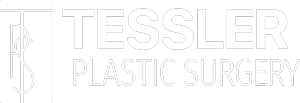Effective one-on-one consultation is the first step towards a successful plastic surgery outcome. Patients who have done the research and ask plenty of questions tend to get the most out of the consultation. This initial visit allows you to discuss your concerns with the plastic surgeon and pose any queries you may have regarding preparing for your plastic surgery, how the procedure is performed, recovery, and expectations. Below is our list of the top X questions we think you should ask during your consultation with a plastic surgeon.
Are you board certified in plastic surgery?
However much online research or personal referrals you have received about a specific surgeon, the first thing you want to ascertain is that they are certified by the American Board of Plastic Surgery (ABPS). This is an independent, nonprofit organization that certifies plastic surgeons who have the requisite level of training and skills. Membership with other professional organizations such as the American Society of Plastic Surgeons (ASPS) is also another good indicator of a surgeon who is deeply rooted in their profession. Once you ascertain that the surgeon you have selected is board-certified, then you can discuss the modalities of your treatment. The surgeon should observe your concerns and recommend the most beneficial plastic surgery procedure for you. From here, you can ask further questions to establish whether they are the right professional for the job.
How often do you perform the procedure I am interested in?
Once you have decided to have a specific procedure (based on your own research and the surgeon’s recommendation), you want to know how much experience the plastic surgeon has. The goal is to find a specialist who’s especially qualified and experienced in the treatment you are looking for. For instance, if you are planning to have a breast augmentation, your goal should be to work with a plastic surgeon who has performed dozens (or even hundreds) of successful breast enlargement procedures. Ask to see before and after photos so you get an impression of the kind of results you may expect. It also helps to get in touch with a few of the surgeon’s past patients so you get some good first-hand reviews.
What type of anesthesia will be used?
It is important that you know what anesthesia would be used during the surgery so that you prepare both mentally and physically. Both local and general anesthesia are known to be safe but are different in terms of applicability and benefits. Local anesthesia leads to a shorter initial recovery. However, it cannot be used during complex plastic surgeries such as a full facelift and abdominoplasty. The next question you need to ask here is who’ll be administering the anesthesia. Whoever the surgeon’s anesthesiologist is should be board certified or at least a certified registered nurse anesthetist.
Where will the procedure be performed?
Most outpatient plastic surgeries are performed at the surgeon’s in-office operating room. In some cases, the procedure may need to be performed at a third-party accredited facility. Regardless of the specific venue, you want to make sure that the surgery is performed at a facility that is evaluated for safety by industry bodies such as The Joint Commission and the Accreditation Association for Ambulatory Health Care (AAAHC).
What can I expect from recovery?
The recovery process after plastic surgery can vary from one patient to the other based on factors such as the surgical technique used, the intensity of the surgery, and the patient’s healing capacity. It is important that you have a handle on just how much downtime you’ll need before you can resume routine activities. This will help you make plans ahead of time. For instance, in many cases, plastic surgeons recommend that you have someone (a close friend or family member) drive you home and help out with basic chores. Having someone to give a supporting hand and talk to can make things a whole lot easier. You may also be asked to desist from certain activities such as showering or moving certain parts of your body. You need to have a clear picture of what you can expect during recovery so that you plan ahead and prepare to do everything by the book.
How much will my procedure cost?
The cost of plastic surgery varies from one procedure to the other. Factors such as the surgeon’s fees, anesthesiologist fees, facility fees, materials involved, and cost of the medication will play a role. More so, each patient has different needs regarding the type of procedure being performed, and the extensiveness of the surgery. Having a clear idea of how much (in total) you can expect to pay for the surgery can be very important especially given that health insurers typically do not pay for cosmetic surgeries.
Conclusion
The questions above are a good place to start during your initial consultation with a plastic surgeon. However, they are just a hint. Make sure the session is as exhaustive as possible. The surgeon should clearly understand all your concerns and expectations and satisfactorily answer your questions regarding the procedure. It is important that you have a clear line of communication (and that there are no misunderstandings) at this point.

